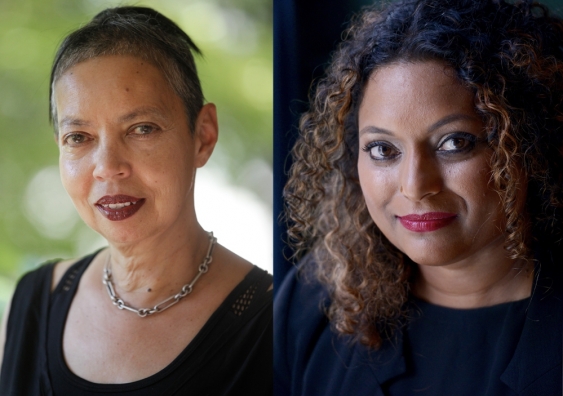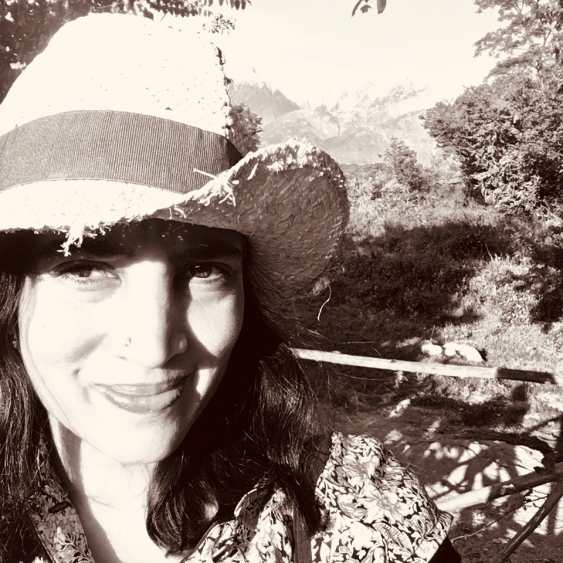UNSW Writers-in-Residence event will focus on the migration experience
Fiction authors Michelle de Kretser and Roanna Gonsalves will headline a Writing Contemporary Australia event on Thursday.
Fiction authors Michelle de Kretser and Roanna Gonsalves will headline a Writing Contemporary Australia event on Thursday.

Diane Nazaroff
UNSW Media & Content
+61 (2) 9385 2481, +61 (0)424 479 199
diane.nazaroff@unsw.edu.au
UNSW Writer-in-Residence Roanna Gonsalves believes that reading fiction is an invitation to empathy, as it helps the reader see the world from different perspectives.
“Fiction illuminates aspects of the world and aspects of human experience that we wouldn’t consider on our own,” the South-Asian Australian author says. “Fiction helps us live a million lives.”
The emerging author, who won the NSW Premier’s Literary Awards Multicultural Prize last year for The Permanent Resident, is finishing her residency at UNSW by speaking at the Writing Contemporary Australia panel event hosted by UNSWriting on March 28.
The panel event will also host this year’s UNSW Writer-in-Residence, the award-winning established writer Michelle de Kretser, in conversation with another South-Asian Australian author Suneeta Peres da Costa.
Ms de Kretser was born in Sri Lanka and her fiction has won numerous awards, including the Miles Franklin for Questions of Travel.
Ms Peres da Costa was born in Sydney to parents of Goan origin and writes fiction, non-fiction, plays and poetry.
The three writers of South-Asian backgrounds will discuss how writers can explore and navigate the currents of everyday life, with migration and movement across worlds a common experience, which unfolds differently for different people.
Ms Gonsalves points out that Asia accounted for almost 60% of Australia’s migrant intake in the 2016-17 financial year.
“Yet Australia is seen as a White nation, as is Canada and America and New Zealand in many ways,” she says.
“My work is a deliberate attempt to disrupt this narrative … It is also an attempt to reimagine what it means to be an Indian today. As an Indian and now also an Australian, I write from the cultural peripheries of both nations. All the stories in my book The Permanent Resident are about outsiders.”
She says a reading of Michelle de Kretser’s work will result in seeing “in a new way, the power hierarchies that can exist between neighbours, you will understand the experience of travel in a new way, you will have a fresh perspective on Australia, on class privilege, on the literary world”.
Ms Peres da Costa, whose new work – which is funded by the Copyright Agency Limited – is set in India, says the topic of the panel event is timely and resonant.
“Since my new novella Saudade was published last year, I realised I have always been writing stories about migration, cultural difference, borders, colonisation, wars of independence and sovereignty – and the mythologies about race and 'Others' which the nation state engages in,” she says.
“My two book-length works, Homework, and Saudade, are about diaspora, home-making and un/belonging in colonial and postcolonial societies, with Goan and Indian identity at the centre of that experience.”

Author Suneeta Peres da Costa. Photo: Leonie Oakes
Ms Peres da Costa says the two writers “allow us to see how characters connect and fail to connect with others; with Australia and with the world; how we misunderstand each other and ourselves because of prejudice, ignorance, hypocrisy, ambition and vanity – and yet the writing creates a bridge to understanding all of this”.
She says injustice has always propelled her to write.
“I want the reader to empathise or at the very least for the text to elicit sympathy so that they might better understand the characters’ motivations, journeys and destinations.”
UNSWriting director, Dr Stephanie Bishop, says it has been a “huge honour” to have “one of Australia’s most pre-eminent and most celebrated authors” – Ms de Kretser – at UNSW as a writer-in-residence.
“Her visit has enriched the life of the school in many ways. She has given generously of her time and been an inspiration to the students,” she says.
“Her residency has added to the vibrant intellectual life of the University, brought new attention to Australian fiction, and fostered the development of major new creative work.”
During their residencies at UNSW, the South Asian writers were required to present masterclasses for students, give lectures on their work and be available for student consultations.
Ms Gonsalves says the three-month residency at UNSW enabled her to consult with historians and make use of the UNSW Library’s resources.
This helped with her next novel, an historical fiction based on Governor Macquarie’s Indian servant.
“I hope I can do justice to the story,” Ms Gonsalves says.
For Ms de Kretser, the UNSW residency allowed her to access the research library, interact with “formidable thinkers in the humanities”, introduce her work to new student and academic readers, and raise the profile of contemporary Australian literature within UNSW.
“I’m immensely grateful to UNSW and the Copyright Agency for the financial support that allows me to write. There’s no greater gift,” she says.
Ms de Kretser’s longform essay On Shirley Hazzard will be published in October.
UNSW Creative Practice Lab manager Su Goldfish says she is proud to have been involved in producing the UNSWriting program, “which has consistently over the years profiled the work of minority authors from a range of different backgrounds”.
“The conversations around race and identity, who gets to speak and who gets heard have been illuminating, challenging and inspiring,” she says.
The Writing Contemporary Australia panel event will be held at lo Myers Studio, UNSW Sydney, on March 28.